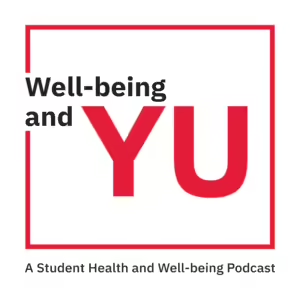Keep track of your schedule
We’ve all heard the advice: always use a calendar or planner to schedule your day! I’m no exception. Using a calendar helps me visually divide my tasks, so I can keep track of everything on my to-do list. Here are a few points I’ve learned about scheduling that work for me:
Take care of one task at a time
When there’s too much on your to-do list, don’t try to get everything done at the same time. Block a 30- or 45-minute slot for one task, such as “read chapter 4 of this book from this course” or “reply to work emails.” You can also set a timer at the start of each session to keep yourself focused and accountable for your time.
Schedule in your breaks
This may sound intuitive, but trust me, I had to learn it the hard way. When I had to travel between places on the same day, I would find that I left no time for lunch. When you have classes, work, or other commitments on the same day, make sure to block a time and location to sit down and have lunch.
Pro tip: Learning Skills Services offers workshops, including time management skills. Once you sign up, don’t forget to block your calendar!

Find work that you enjoy doing
Many of us work while studying to financially support ourselves. If you’re working anyway, why not find a job that you truly love? You know what’s even better? Working a job that will also allow you to apply your learnings in real life projects! If you’re not sure where your program will lead you, book a career counselling session at Career Education & Development (CED). If you already know what jobs you want to apply to, CED also hosts webinars on resumé and cover letter writing and interview preparation, both of which I attended before applying to my current work/study position. I certainly learned a lot from exploring York’s resources!
Although work comes with expectation and possibly stress, it also gives me motivation to explore my interests further. I study English and professional writing, and I write for the YUBlog. It’s the perfect opportunity to work with professionals in my field since I enjoy writing. If I were just writing as a hobby with no deadlines, I would probably be pushed away by the writer’s block and never really get started. Writing for work helps me explore my interests and supports me to fight against my writer’s block (or just procrastination). Similarly, when I know that I’m practicing piano for an upcoming performance, I’m more motivated to practice because I want my audience to hear what I have to say through my music.
One interesting advantage I find in balancing multiple commitments is that they balance each other out. When I’ve been doing schoolwork for hours, I can play the piano. When I’m overwhelmed by what I’m practicing on the piano, I can go ahead and read. After I’ve been teaching for two full days, I head to my classes to exercise my brain a different way! I know it sounds like a lot, but they balance each other out.
Find me-time
Having to work seven days a week is not uncommon for university students, let alone having weekends off. I think it’s important to leave one day off from any recurring events to have some rest. I would rather take on a heavier workload on other days to leave one day of the week to myself. It is difficult to find a dedicated break time when you have too many commitments. At this time of the semester when final assignments and major essays are rolling around, this one free day becomes a cushion period to catch up on schoolwork.
Even on my days that are fully packed, I try to wake up early to exercise. Sometimes I can only get 10 minutes in but knowing that I’ve done my exercise of the day keeps me in a good mood. When I go to bed, I disconnect from everything work or school related. I’m a workaholic sometimes so I work on my phone too, but I had to teach myself not to give myself extra work that nobody asked for.
References
York University (November 4, 2022). My approach to work-life balance. https://yublog.students.yorku.ca/my-approach-to-work-life-balance


